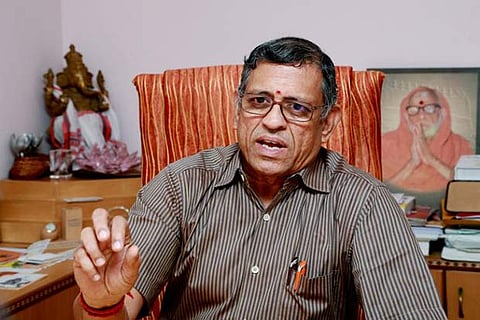

Chennai
Underlining that Hinduism is a religion which creates no conflict, he said many foreign authors have also acknowledged this fact and have noted that because of this Islam and Christianity spread their roots in India.
Gurumurthy, who is a member of RBI board and edits Tamil weekly Thuglak, was speaking at a webinar on 'Ayodhya Movement and National Polity' organised by Vivekananda International Foundation.
Talking about the Ram temple movement, he said the issue became more prominent after the Naresh Chandra committee, appointed in early 1990s by the then prime minister Narasimha Rao, found that all evidence proved there was a temple at the disputed site in Ayodhya.
Gurumurthy also claimed that many political leaders and parties did not resolve this dispute for their political benefit, otherwise it could have been solved easily. Describing as landmark the Supreme Court judgment on the disputed land, he said, "With Ayodhya judgement a shift started...the Hindu phenomenon which was marginalised, trivalised, called communal, backward and unsuited to contemporary India, it bounced back (in the country)."
Gurumurthy suggested that this phenomenon bounced back in every aspect of the country's discourse and said it was there in politics as the BJP and Shiv Sena fought election on this plank and won. He also recalled various incidents during the VP Singh government and thereafter as well, when he tried to resolve the dispute with former Union minister Arun Jaitley and former BJP organisational secretary Govindacharya.
Prime Minister Narendra Modi on August 5 laid the foundation stone for the construction of the Ram temple. In November last year, the apex court in a historic verdict backed the construction of the Ram temple by a trust at the disputed site, and ruled that an alternative five-acre plot must be found for a mosque in the Hindu holy town.
Settling a fractious issue that goes back more than a century, the Supreme Court delivered a unanimous judgement on a case that has long polarised the country and frayed the secular tapestry of Indian society.
Visit news.dtnext.in to explore our interactive epaper!
Download the DT Next app for more exciting features!
Click here for iOS
Click here for Android